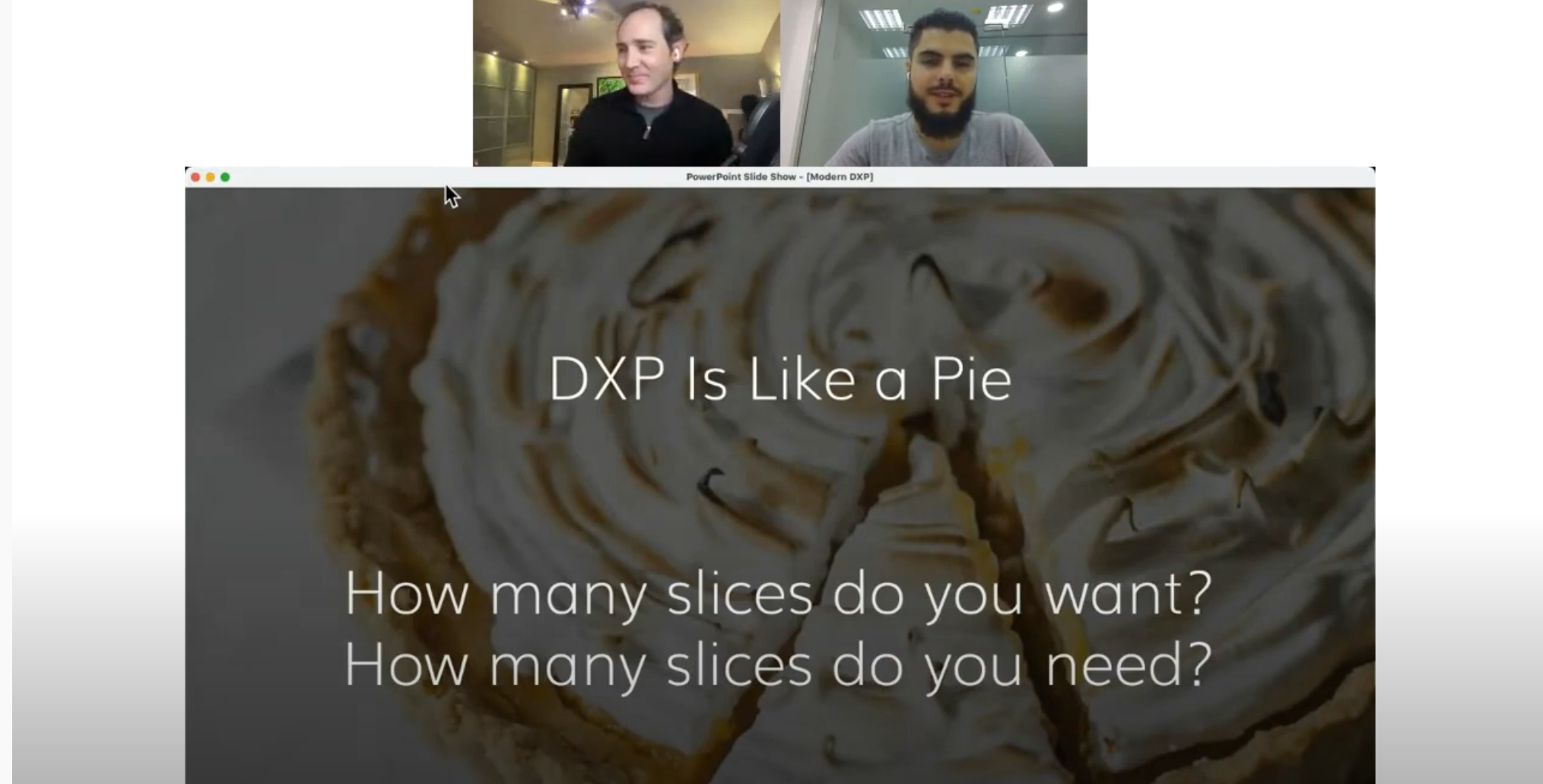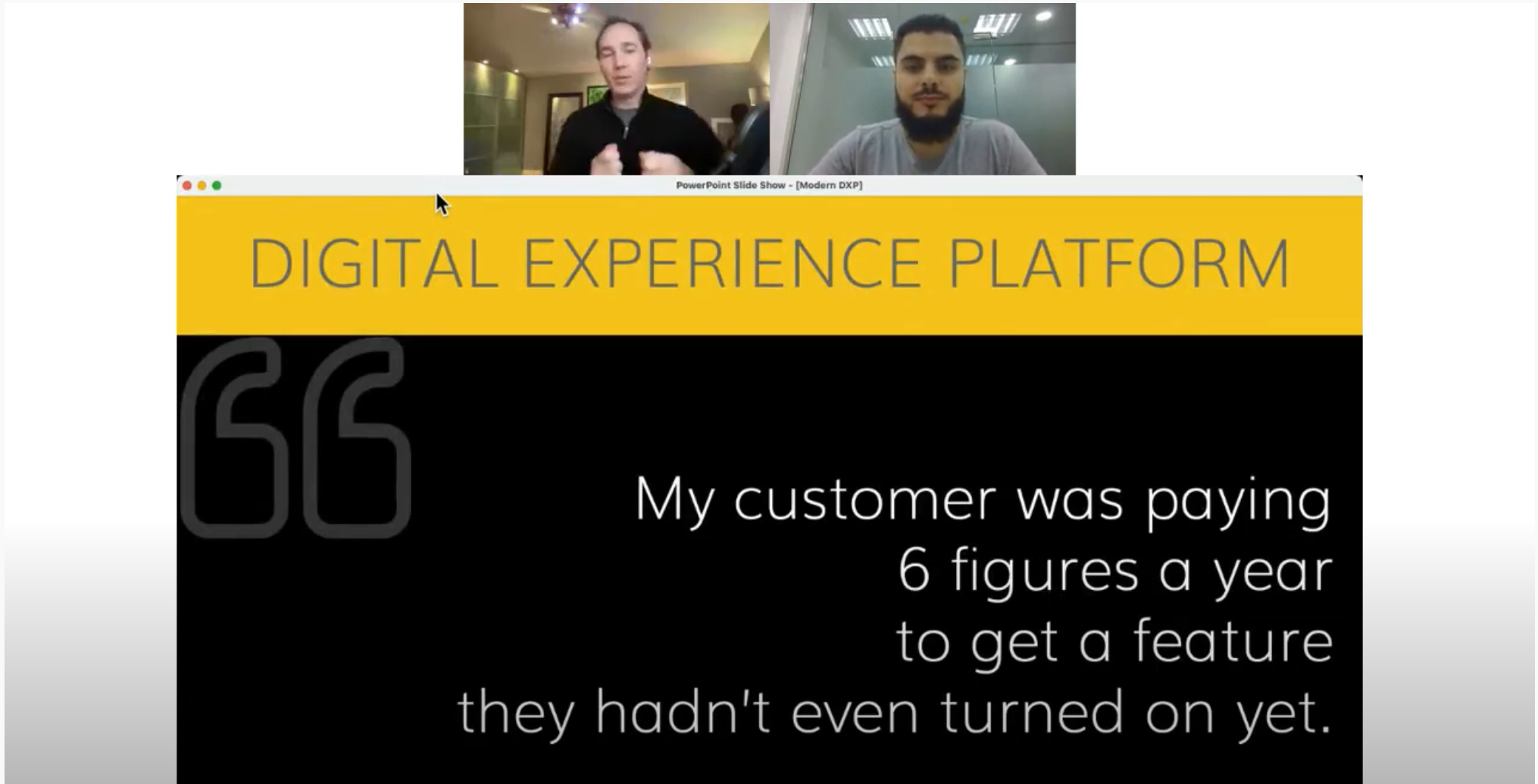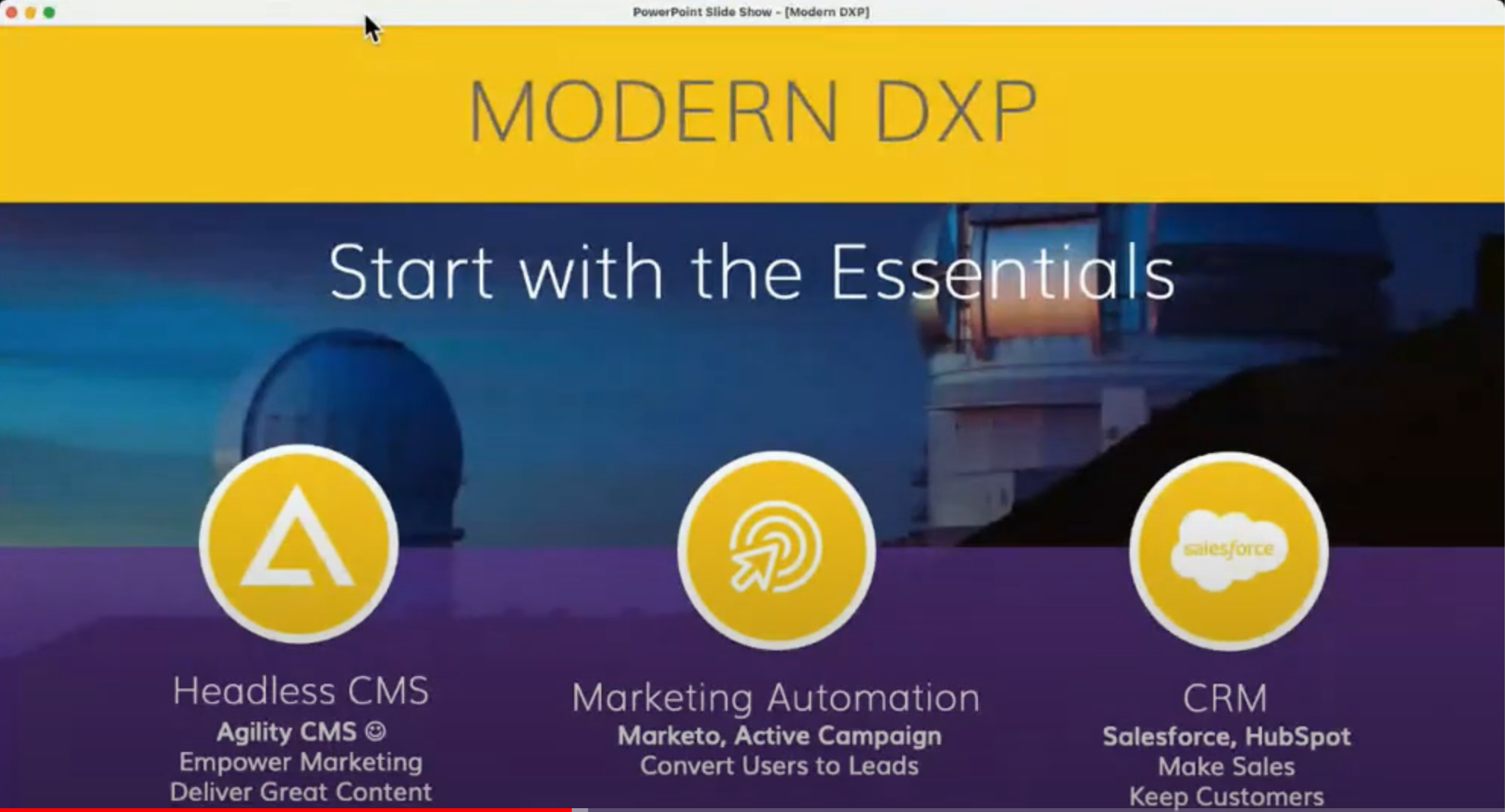The Digital Experience Platform and its Alternatives: Why Are Monolith DXPs Not The Answer?
Fireside Chat: Joel Varty & Kaya Ismail

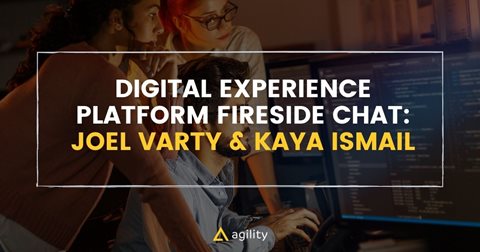
In this fireside chat, we have two DXP experts: Kaya Ismail, founder of Wordify and DXP Report, and Joel Varty, President of Agility CMS.
If you're more of a video person, or you want something to watch while you read along, watch the video below:
The Speakers:
Kaya Ismail
Kaya Ismail has been a journalist and commentator on the CMS space for almost a decade and started his journey as a writer for one of the top CMS-related publications for three years and then began writing for CMSWire, where he got known as a journalist. In 2016, Kaya launched Wordify, a content agency focused on helping CMS and DXP vendors and other companies in the industry with their content marketing, content strategy, and messaging. Recently, Kaya also launched DXP Report, a weekly newsletter about the DXP space.
Joel Varty
Joel Varty is President at Agility CMS, a SaaS headless content management platform that combines flexible and fast Headless architecture with familiar and easy Authoring tools for editors. When it comes to cloud computing, development, and software architecture, Joel is as good as they come.
A Quick Intro on the Acronyms We Will Use:
- CMS: Content Management System
- ECM: Enterprise Content Management
- WCM: Web Content Management
- DXP: Digital Experience Platform
- Composable DXP: Microservices-based Digital Experience Platform
DXP Explained: Composable and Traditional
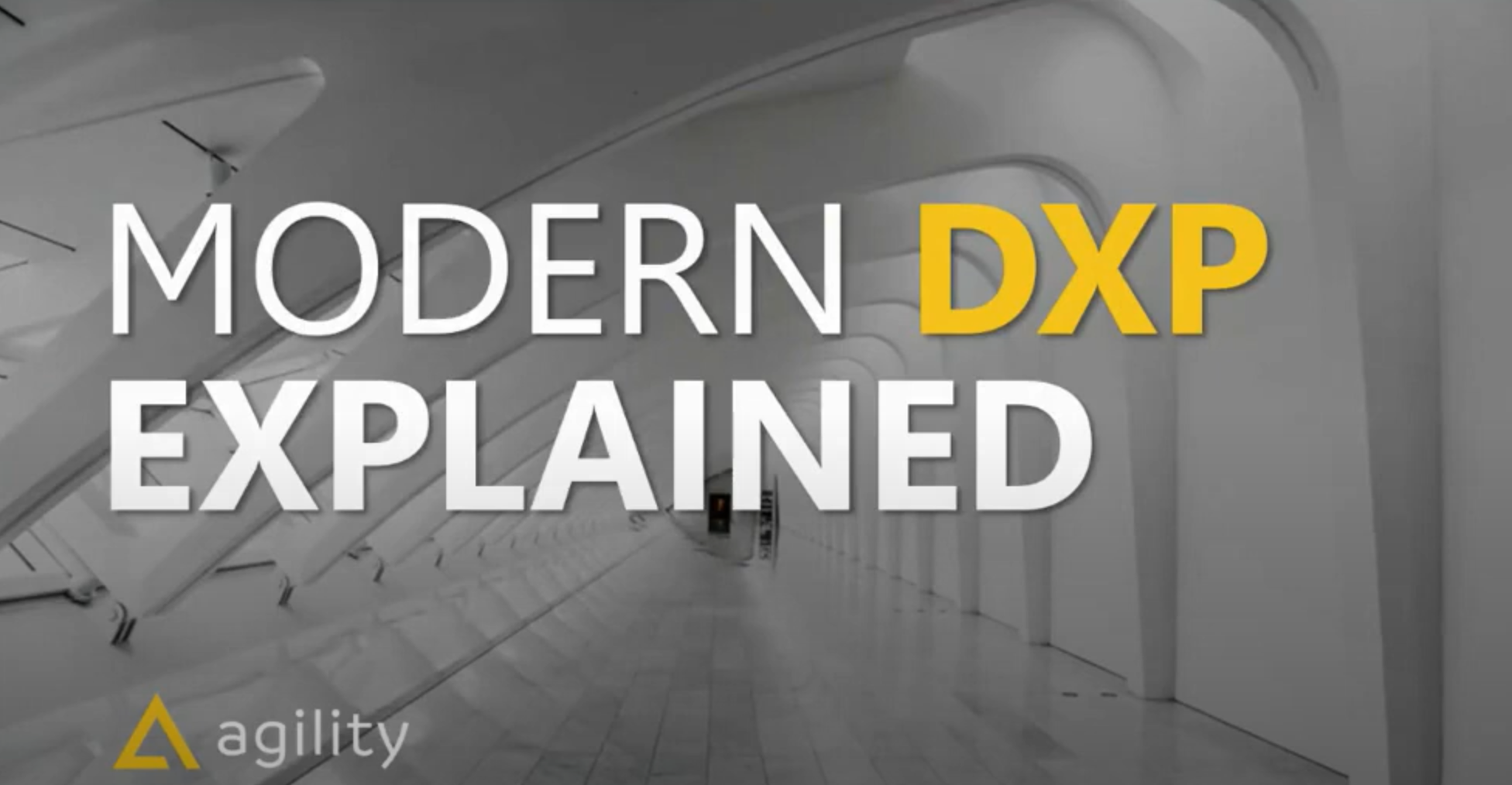
Traditional DXP
Traditional DXPs, also called all-in-one DXPs are integrated, all-in-one packages where you get what you pay for, which is usually a lot more than you need "in the DXP industry, this is what I call the all-in-one promise; or we've heard this called monoliths. We've also heard them being called suites of packages. But it's basically trying to put all the services that you just talked about, that can be API-driven, in one box," shared Varty.
The problem with this approach is that the more you need, the more you add, which tends to bloat the platform with features you probably don't need.
"Sure, you do get what you pay for, but it's usually a lot more than you might need. And this is what I've seen in my experience in the industry. You know, Agility CMS has been around for enough time that we've seen vendors start from one spot and then grow into these suites," shares Varty.
Composable DXP
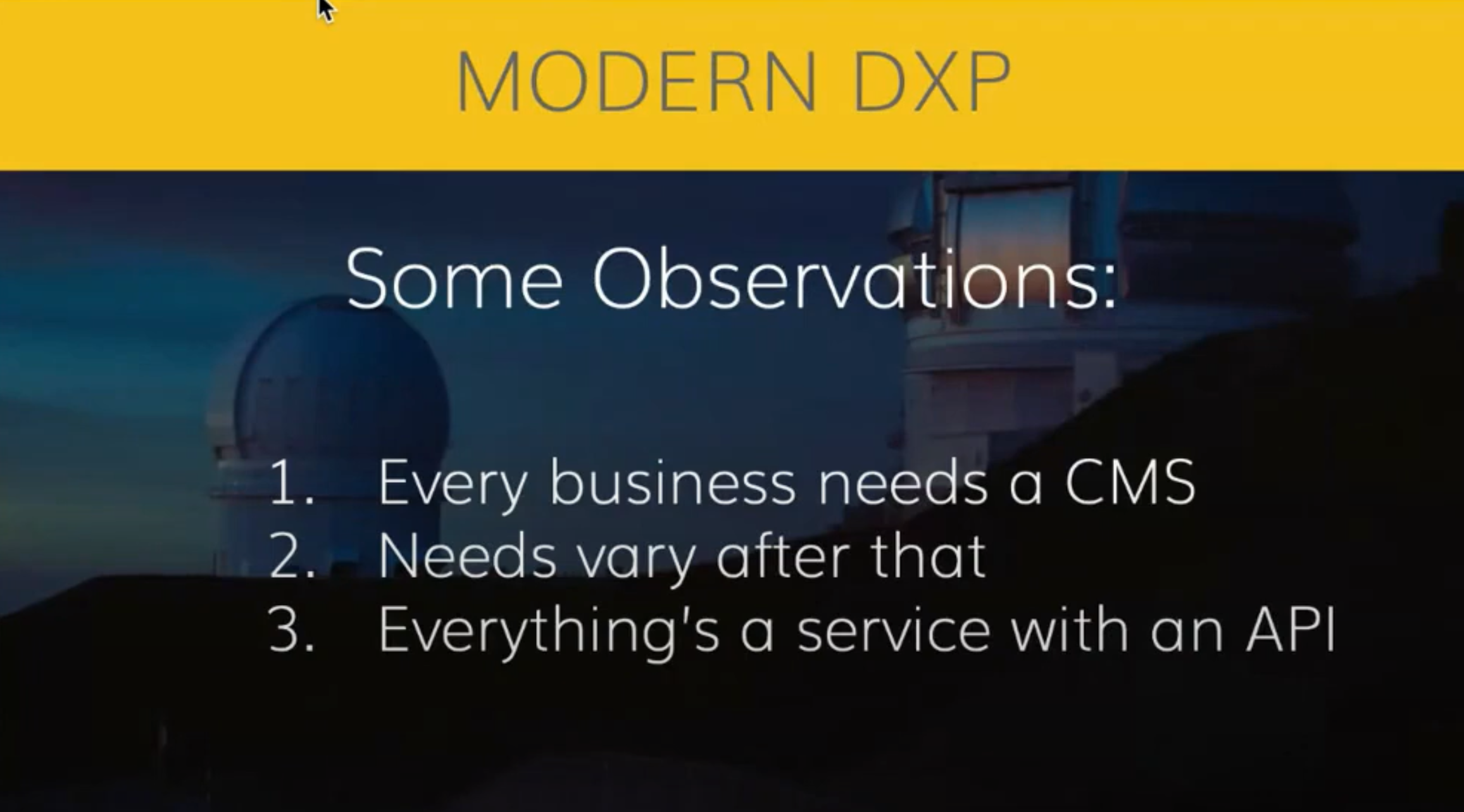
Composable DXP is the latest way of describing this particular set of technologies, says Kaya Ismail.
"If I was to describe the DXP, there are two ways you can go at this: the one I prefer is the digital experience platform is that sort of foundational piece or the spine if you will, of your digital technology stack, essentially. So at the DXP, how Gartner and Forrester are looking at things is essentially headless CMS, which is a content management system that has been decoupled from the frontend, which is left to the back end, driven by APIs, and what it essentially allows you to do is to have that relatively lean and agile CMS there to handle your content management, and that can integrate with pretty much anything else," finished Ismail.
With a composable DXP, you won't have a CRM on top of that your eCommerce platform personalization engine or on top of anything else. Also, APIs are the lifeblood of the composable approach, says Ismail. "I like to think of it like APIs being the glue of those connected microservices. So when you have the head of CMS, it sort of acts as a foundational piece that can be built on top of that's how I like to see things," commented the CMS expert.
Composable DXPs have come to help companies build their own technology stacks in the way they see fit, "...without having something out of the box that they're not necessarily gonna use ever to bring down costs, make things more agile for internal employees and end-users. So that's what we see here. And I think it's just a reflection of what's going on in the market essentially," said Ismail.
Why Are Monolith DXPs Not The Answer?
While all-in-one software has a lot of potential benefits, it can be hampered by a lack of strategy, "I think a lot of this stems from brands not really knowing where they actually stand from a human resources perspective and a strategic perspective," says Kaya Ismail. "So what I see is they'll see this sweet CMS out there, and say, oh, hey, it's got personalization features, which means, once we finally roll that out, we'll be doing personalization, just like Amazon," the expert continues.
Sadly, the reality is that you need to put a lot of effort into your strategy and your people to make that happen. You need a strategy, a lot of people power inside, and a lot of people creating content at scale to sort of push content across channels, to segment that content, and tailor content to each different segment of your audience. You can't just do that very easily, and simply acquiring a CMS that has a personalization engine or processing features; you're not necessarily going to be able to take advantage of that, even if you really want to.
This feature hype happens not for features like personalization. Other hyped features like machine learning and artificial intelligence also enter this bucket as monolith vendors offer them to enthuse users to buy the platform. Then the users don't know how to leverage these features. Joel Varty has an interesting position about this particular issue, he thinks of CMS features as pieces of a pie.
"Often, people come to us first, especially enterprises that are looking to build a new website or do new digital properties. And we say Agility CMS is one slice of the pie, and we're going to help you fill out the rest of it. But you know, how many slices you want is a big decision. And then how many slices do you actually need?" he says.
Composable DXPs To The Rescue
Just like our speakers mentioned earlier, APIs are the glue that makes composability possible. Kaya Ismail goes a bit further into that and signals some of the benefits of APIs in the composable or agile DXP structure. "When you're with an agile CMS that is API driven, it's a lot easier to communicate with these brand new apps that you didn't have to use two months ago, but suddenly, you know, your business is extremely reliant on them. So that's how I see API as a communication between different apps. It makes it easier to make brand new communications or new integrations very, very quickly.
Joel Varty believes something similar but adds that the CMS should be at the front and center of your DXP; he says, "I believe in empowering, marketing and delivering great content. And that's what Agility CMS is all about. There are lots of other headless CMS platforms. And we even work sometimes with customers who have multiple CMS had the CMS is in you know because they're a huge corporation might have different departments that actually use different CMS is, and that's okay because they're just services with an API, but they kind of form the foundation of the digital experience platform."
The Role of Composable DXPs in Increasing eCommerce ROI
Agile DXPs are increasingly more sought after in the eCommerce space, Varty comments. He says, "I see headless eCommerce as an emerging trend through that because it's an API-driven service that you can add on to your existing products. So you could have it like I'm seeing people are using Shopify to make in-game purchases, they're using it to do purchases anywhere, adding an eCommerce platform to their current website."
Kaya Ismail also makes an interesting comment about how much ROI a composable DXP can generate for eCommerce store owners. He shares that, "In the last couple of years, we've seen that the ability to be agile is the ROI. That's something that can't be argued against. When it comes to things like the pandemic, things like new devices in the market, new channels in the market, your touchpoints need to be, fed content and have marketing information on there. The ability to be able to do that quickly, quickly, your competitors is, you know, it's invaluable, and here's where composability plays a key role."
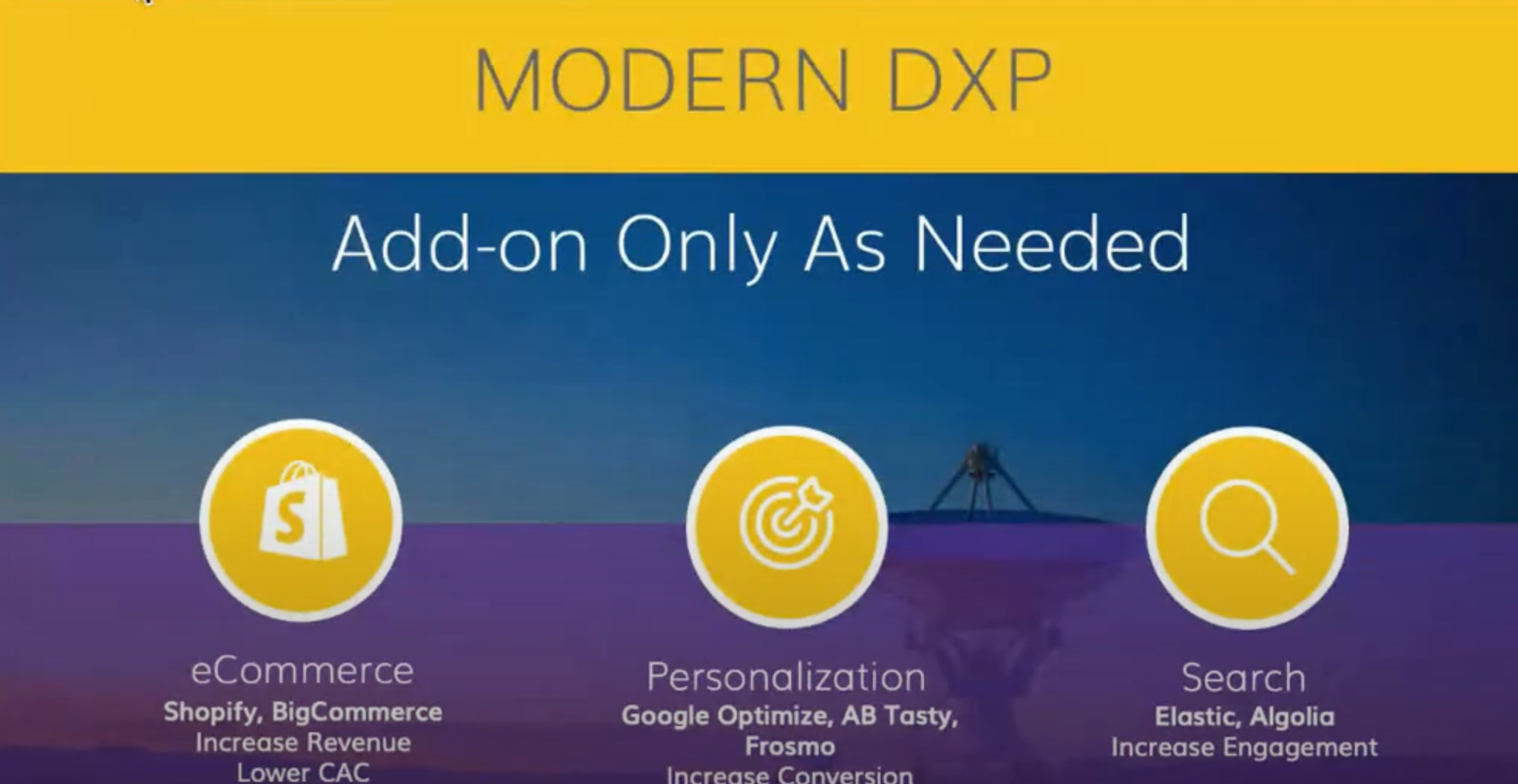
Composable DXP and Personalization
Personalization is a big reason why people shift toward DXPs, but the reality is that personalization at scale isn't easy to carry out. Kaya Ismail pointed out the fundamental problem of personalization in a monolith DXP "...is not really a technological issue. It's a people issue. Do you have enough people to do this? And it's also a strategy issue. So when I say, do you have enough people to try and give some perspective to this? To personalize an experience for different personas on an enterprise-level?"
Personalization at scale means giving every possible visitor its own experience and its own message, all custom-tailored to their behavior on the site. That's why personalization can be tough to roll out, even with the right set of tools. The problem with this, Ismail thinks, is that:
"...a lot of companies are falling into the personalization trap. The personalization dream and they're not there yet. And they may be there in two or three years' time. They're just not there yet."
Composable DXP and Search
Search capabilities are typically embedded within the traditional CMS, and it's one of those features that are usually bundled in-suite DXPs and CMS. In fact, we had embedded search capabilities at one point in Agility CMS, but we realized how difficult it was to cater to every customer's needs with a monolith search function; however, as Varty signals, the platform has leaped composability using other API-based search tools. He said, "...search capabilities are the perfect case for APIs and services that you can swap them in and out, because of these offerings, from Elastic to Algolia, who have put a lot of effort into their products, we can now extract tons of value without hardcoding search into Agility CMS, which is another step we're doing towards full composability and best-of-breed.
Composable DXP and Hosting
Typically, DXP suites don't give you the ability to host things wherever you want. They might not give you the tools to do cloud hosting, or if they do, chances are that they only play well with a set of vendors such as AWS or Azure. Plus, if you want to host things elsewhere in many of these cases, you have to do it yourself by either hiring someone or doing it yourself. Agility CMS takes a different approach to this, according to Varty. He says that "...with the services-based approach, you can use some of the newer hosting tools such as Netlify and Vercel; you can often run most of your site for free to get started to see how it's going to work." Kaya Ismail agrees with this approach and mentioned that "...being able to choose or developers being able to choose what technologies to use for each different projects is another really massive factor that I see this with different brands or moving away from suite DXPs."
Composable DXP: The Future of Digital Experience Platforms
In the end, it's culture, not technology, that's driving the decisions. Developers, marketers, salespeople, project managers, we're all part of that cultural shift. We believe that is and that it happens, whether we like it or not. Whether we're part of it or not. It sweeps over everything. And it's just a matter of whether your business adopts that as it comes along.
If you want to learn more about how Agility CMS does DXP orchestration, read more here: What Is a Modern Digital Experience Platform (DXP)?
Keep Reading
If you want to learn more about Headless CMSs, make sure you read these articles:
- Traditional CMS vs Headless CMS – Explained
- How To Choose The Best Headless CMS For Your Brand (2020 Edition)
- WordPress vs Headless CMS: A Comparison

About the Author
Joel is CTO at Agility. His first job, though, is as a father to 2 amazing humans.
Joining Agility in 2005, he has over 20 years of experience in software development and product management. He embraced cloud technology as a groundbreaking concept over a decade ago, and he continues to help customers adopt new technology with hybrid frameworks and the Jamstack. He holds a degree from The University of Guelph in English and Computer Science. He's led Agility CMS to many awards and accolades during his tenure such as being named the Best Cloud CMS by CMS Critic, as a leader on G2.com for Headless CMS, and a leader in Customer Experience on Gartner Peer Insights.
As CTO, Joel oversees the Product team, as well as working closely with the Growth and Customer Success teams. When he's not kicking butt with Agility, Joel coaches high-school football and directs musical theatre. Learn more about Joel HERE.

